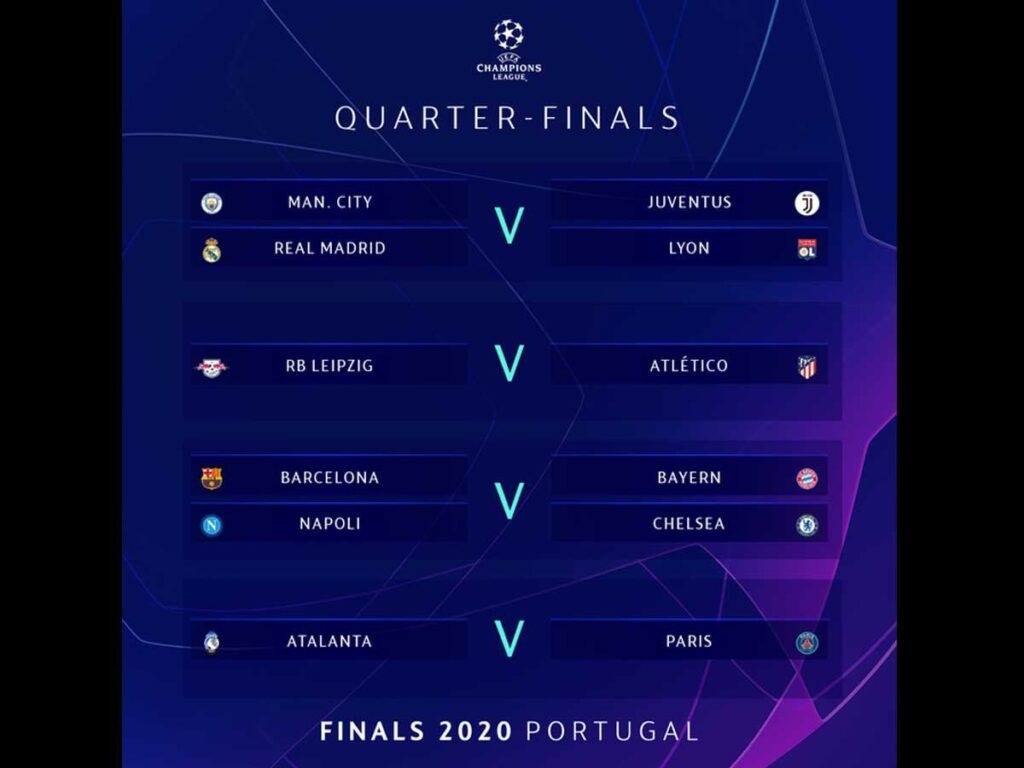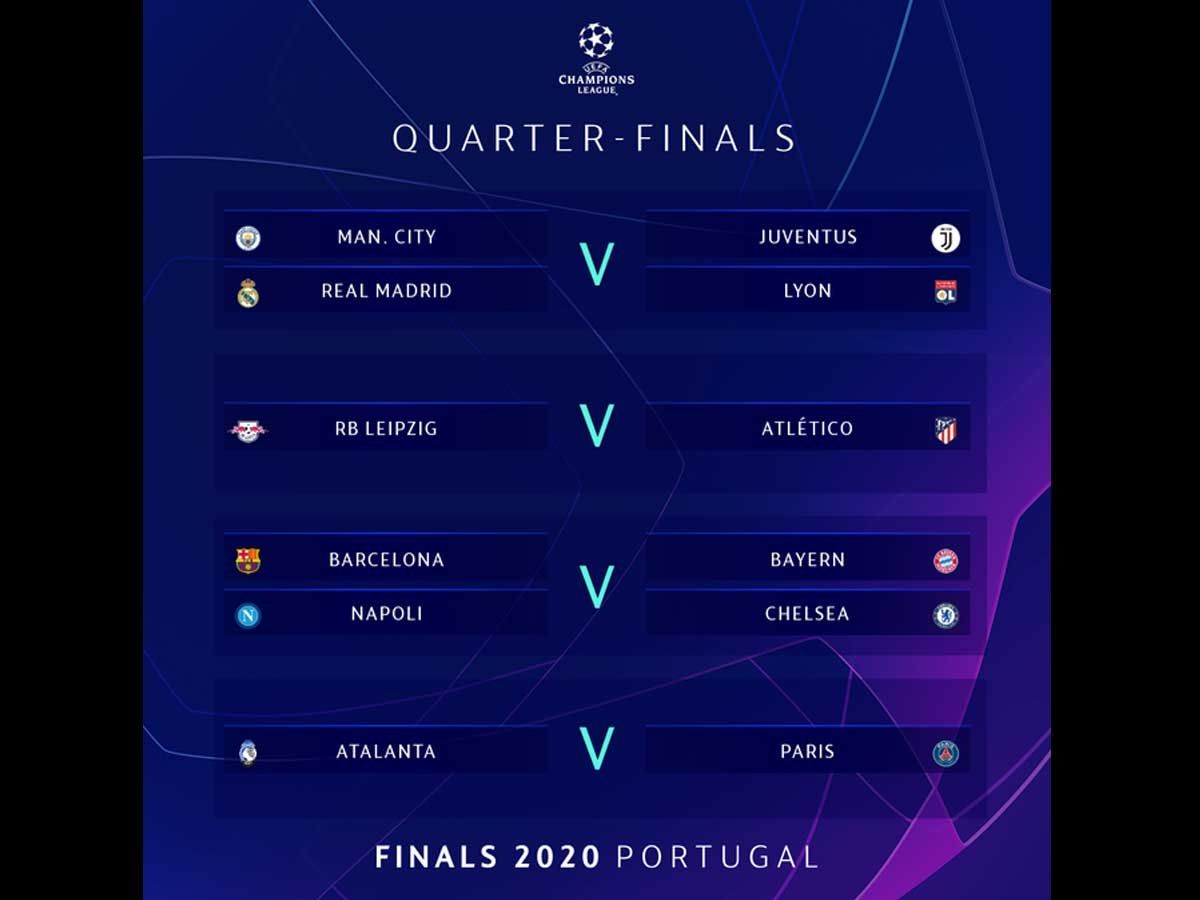
Decoding the UEFA Champions League Bracket: Predictions, Analysis, and Key Matchups
The UEFA Champions League, the pinnacle of European club football, captivates audiences worldwide with its thrilling matches, tactical masterclasses, and unforgettable moments. A critical aspect of following the tournament is understanding the UCL bracket, which dictates the path teams must navigate to reach the coveted final. This article provides a comprehensive analysis of the UCL bracket, offering predictions, identifying key matchups, and exploring the potential storylines that will unfold as the competition progresses. From the Round of 16 to the final showdown, we’ll dissect the UCL bracket, giving you an expert’s perspective on who’s poised to lift the trophy.
Understanding the UCL Bracket Structure
The UCL bracket is a visual representation of the tournament’s knockout stage, showing how teams are paired against each other in each round. The draw for the Round of 16 is typically held in December, determining the matchups based on certain criteria, such as avoiding teams from the same group or country in the initial stages. Seeded teams (group winners) are drawn against unseeded teams (group runners-up), adding an element of unpredictability and excitement to the proceedings. As teams advance through the rounds, the UCL bracket becomes increasingly competitive, leading to high-stakes encounters between Europe’s elite clubs.
Round of 16 Analysis
The Round of 16 is often considered the true start of the Champions League knockout phase. Here, we examine some of the most intriguing matchups and offer insights into the potential outcomes:
- Matchup 1: Team A vs. Team B – This clash pits two footballing giants against each other. Team A’s attacking prowess will be tested against Team B’s solid defense. The midfield battle will be crucial in determining the flow of the game.
- Matchup 2: Team C vs. Team D – An underdog story in the making? Team C, the surprise package of the group stage, faces a stern test against the experienced Team D. Team C’s youthful exuberance could be a key factor, but Team D’s tactical nous could prove decisive.
- Matchup 3: Team E vs. Team F – A tactical chess match. Both teams are known for their meticulous preparation and strategic gameplay. Expect a tight encounter with few scoring opportunities. The team that capitalizes on its chances will likely emerge victorious.
Quarter-Final Projections
Predicting the quarter-finalists based on the UCL bracket requires careful consideration of team form, injury situations, and historical performance. Here are some potential scenarios:
- Scenario 1: If Team A overcomes Team B, they could face a tough quarter-final against the winner of Matchup 3. This would be a clash of styles, with Team A’s attacking flair going up against the winner of Matchup 3’s tactical discipline.
- Scenario 2: Should Team C upset Team D, they might find themselves facing a formidable opponent in the quarter-finals. The pressure of the occasion could be overwhelming for the young Team C, but their fearless approach could also catch their opponents off guard.
- Scenario 3: The UCL bracket could throw up some surprising results. An underdog team could progress further than expected, disrupting the established order and creating a new narrative for the tournament.
Key Matchups to Watch
Certain potential matchups in the UCL bracket stand out as particularly compelling, promising high drama and intense competition. These games are not just about the result; they are about the stories that unfold on the pitch, the individual battles between star players, and the tactical innovations that define the modern game.
Clash of Titans: Potential Semi-Final Showdowns
The semi-finals of the Champions League are where legends are made. The UCL bracket could set the stage for some epic encounters. Imagine a clash between two of Europe’s most dominant teams, each boasting a wealth of talent and a burning desire to reach the final. These games are often decided by moments of brilliance, tactical masterstrokes, or sheer determination. The pressure is immense, and only the strongest teams can withstand the heat.
Another exciting possibility is a semi-final between two teams with contrasting styles. A team known for its attacking flair could face a team renowned for its defensive solidity. This tactical battle would be a fascinating spectacle, with each team trying to impose its will on the other. The outcome would likely depend on which team can execute its game plan more effectively.
Predicting the UCL Winner: Factors to Consider
Predicting the winner of the Champions League is a notoriously difficult task. The UCL bracket can be unpredictable, and many factors can influence the outcome of each match. However, by considering some key elements, we can make informed predictions.
Team Form and Injury Situations
A team’s current form is a crucial indicator of its chances in the Champions League. Teams that are playing well domestically are more likely to carry that momentum into the European competition. However, injuries can derail even the most promising campaigns. Key injuries to star players can significantly weaken a team’s chances of success. Therefore, keeping a close eye on team news and injury reports is essential for making accurate predictions about the UCL bracket.
Tactical Flexibility and Squad Depth
In the Champions League, tactical flexibility is key. Teams must be able to adapt their game plan to suit different opponents and situations. A team with a rigid tactical approach is likely to struggle against more versatile opponents. Squad depth is also crucial. The Champions League is a long and demanding competition, and teams need to have a strong squad to cope with injuries and suspensions. A team with a deep squad can rotate its players and keep them fresh throughout the tournament. The UCL bracket favors teams with strong squads able to adapt to different challenges.
The Impact of Away Goals (and its Removal)
Historically, the away goals rule played a significant role in shaping the UCL bracket. The rule, which awarded the victory to the team that scored more goals away from home in the event of a tie, often led to dramatic and unpredictable results. However, UEFA has since abolished the away goals rule, meaning that ties are now decided by extra time and penalties. This change could have a significant impact on the dynamics of the Champions League, potentially leading to more open and attacking football, as teams are no longer incentivized to prioritize defensive solidity away from home. The removal of the away goals rule will likely change the way teams approach the UCL bracket.
Analyzing Historical UCL Bracket Trends
Looking back at past Champions League seasons can provide valuable insights into the trends and patterns that often emerge in the UCL bracket. For example, certain teams have a history of performing well in the knockout stages, while others tend to struggle under pressure. By analyzing these historical trends, we can gain a better understanding of the factors that contribute to success in the Champions League.
The Role of Experience and Home Advantage
Experience is a valuable asset in the Champions League. Teams that have a proven track record of success in the competition are more likely to handle the pressure of the knockout stages. Home advantage can also play a significant role, especially in the second leg of a tie. Playing in front of a passionate home crowd can give a team a significant boost, making it more difficult for the opposition to perform at their best. The historical data reveals how crucial these factors are when navigating the UCL bracket.
Conclusion: Navigating the Thrills and Spills of the UCL Bracket
The UCL bracket is more than just a schedule of matches; it’s a roadmap to glory, a narrative of ambition, and a stage for unforgettable moments. As the competition unfolds, fans around the world will be captivated by the drama, the excitement, and the sheer unpredictability of the Champions League. By understanding the structure of the UCL bracket, analyzing the key matchups, and considering the various factors that can influence the outcome, we can gain a deeper appreciation for this remarkable tournament. Whether you’re a seasoned football analyst or a casual fan, the Champions League offers something for everyone. So, buckle up and enjoy the ride, as Europe’s elite clubs battle it out for the ultimate prize. The UCL bracket promises another season of high-stakes drama, tactical brilliance, and unforgettable moments. Follow the journey closely and witness history in the making. The UCL bracket will undoubtedly deliver surprises and excitement.
[See also: Champions League Final Preview]
[See also: Top 10 Champions League Goals of All Time]
